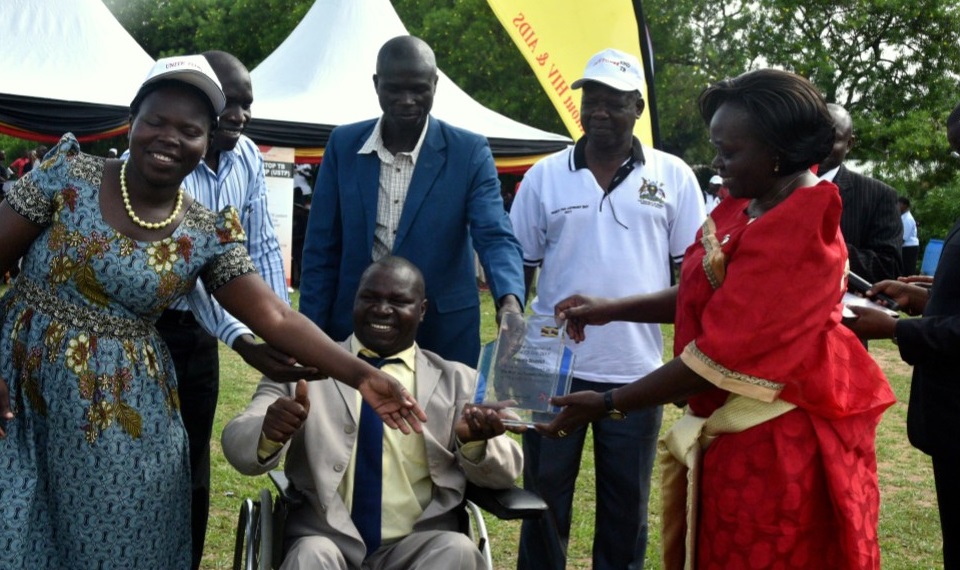
The 5th meeting of the Emergency Committee convened by the WHO Director-General under the International Health Regulations (IHR) 2005 regarding the Ebola virus disease (EVD, or “Ebola”) outbreak in West Africa was conducted with members and advisors of the Emergency Committee on Thursday, 9 April 2015.
As provided in the IHR 2005, the main issues for the Committee’s advice to the Director-General were: (1) does the event continue to constitute a Public Health Emergency of International Concern and, if so, (2) should the current temporary recommendations be extended, revised, and/or new temporary recommendations issued.
The Committee reviewed developments since the previous meeting on 20 January 2015, including the current epidemiological situation. The Committee noted that as a result of further improvements in EVD prevention and control activities across West Africa, including in the area of contact tracing, the overall risk of international spread appears to have further reduced since January with a decline in case incidence and geographic distribution in Liberia, Sierra Leone and Guinea. These three IHR States Parties provided updates and assessment of the Ebola outbreak, in terms of the epidemiological situation and the status and performance of exit screening and contact tracing.
The Committee recognized the progress achieved by all three countries and emphasized that there was no place for complacency, the primary goal remaining the interruption of transmission as rapidly as possible. The Committee reinforced the importance of community engagement in “getting to zero”. The Committee expressed its continued concern about the recent infection of health care workers and reaffirmed the importance of ensuring the rigourous application of appropriate infection prevention and control measures.
The Committee discussed the issue of probable sexual transmission of EVD, particularly the recent case who is likely to have been infected following sexual contact involving an Ebola survivor some months after his recovery. The Committee welcomed the ongoing programme of research underway in this area and urged its acceleration as a priority.
The Committee discussed the issue of inappropriate health measures that go beyond those in the temporary recommendations issued to date. The Committee was very concerned that additional health measures, such as quarantine of returning travellers, refusal of entry, cancellation of flights and border closures significantly interfere with international travel and transport and negatively impact both the response and recovery efforts. Although some countries are reported to have recently rescinded these additional health measures, and some regional airlines have resumed flights to affected countries, about 40 countries are still implementing additional measures and a number of airlines have not resumed flights to these countries.
The Committee concluded that the event continues to constitute a Public Health Emergency of International Concern and recommended that all previous temporary recommendations should be extended. The Committee provided the following additional advice to the Director-General for her consideration in addressing the Ebola outbreak in accordance with the IHR.
Recommendations for the most affected countries (Guinea, Liberia, Sierra Leone)
The Committee strongly reiterated the need for continued exit screening in the three affected countries. Such exit screening must be maintained for at least 42 days after the last case has twice tested negative for Ebola; countries are encouraged to maintain exit screening until human-to-human transmission has stopped in the entire subregion. The Committee again urged affected countries to provide WHO, on a monthly basis, with the number of people screened at international airports and the results of such screening.
Recommendations for countries sharing borders with Guinea, Liberia and Sierra Leone
The Committee reemphasized the need to continue to reinforce active surveillance, particularly in border areas, and to engage in cross-border cooperation, information and asset sharing, continued vigilance for new cases, and tracing of known contacts. The Committee highlighted the strong social and cultural linkages that cross national boundaries and must be taken into account in planning and implementing such activities.
Recommendations for all countries
The Committee reaffirmed the need to avoid unnecessary interference with international travel and transport, and to only implement measures which are commensurate with the current public health risks, as specified in Article 2 of the IHR 2005 and expressed in the current temporary recommendations. The Committee welcomed WHO’s continued work to monitor inappropriate measures and urged States Parties to reverse quickly any such measures and to inform WHO of such action in advance of the World Health Assembly discussion on the Ebola crisis in May 2015.
Based on this advice and the information considered by the Committee, the Director-General declared that the Ebola outbreak in Guinea, Liberia and Sierra Leone continues to constitute a Public Health Emergency of International Concern. The Director-General endorsed the Committee’s advice, extended the existing Temporary Recommendation and issued the additional advice as new Temporary Recommendations under IHR (2005). The Director-General thanked the Committee members and advisors for their advice and requested their reassessment of this situation within three months or earlier should circumstances require.



